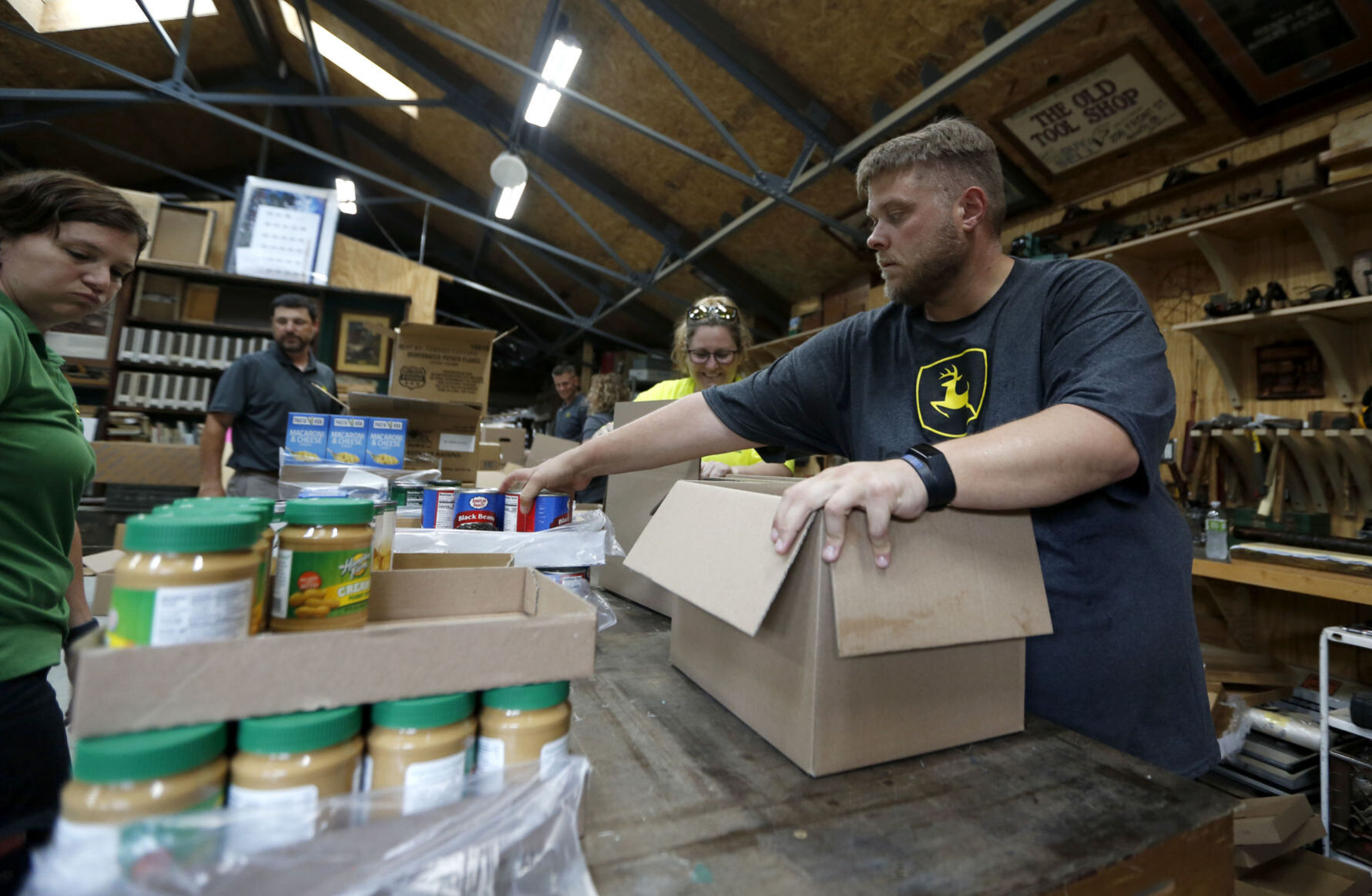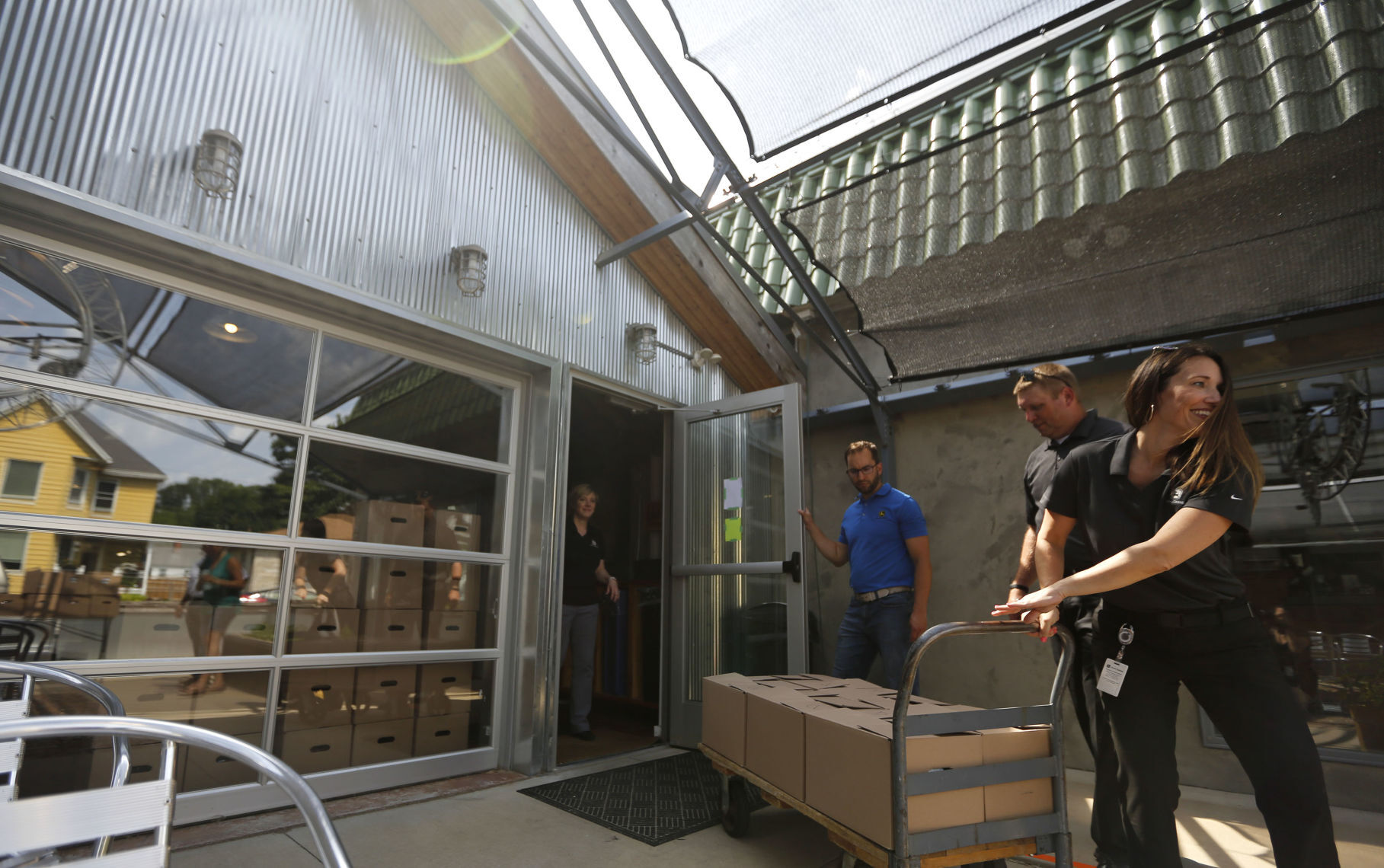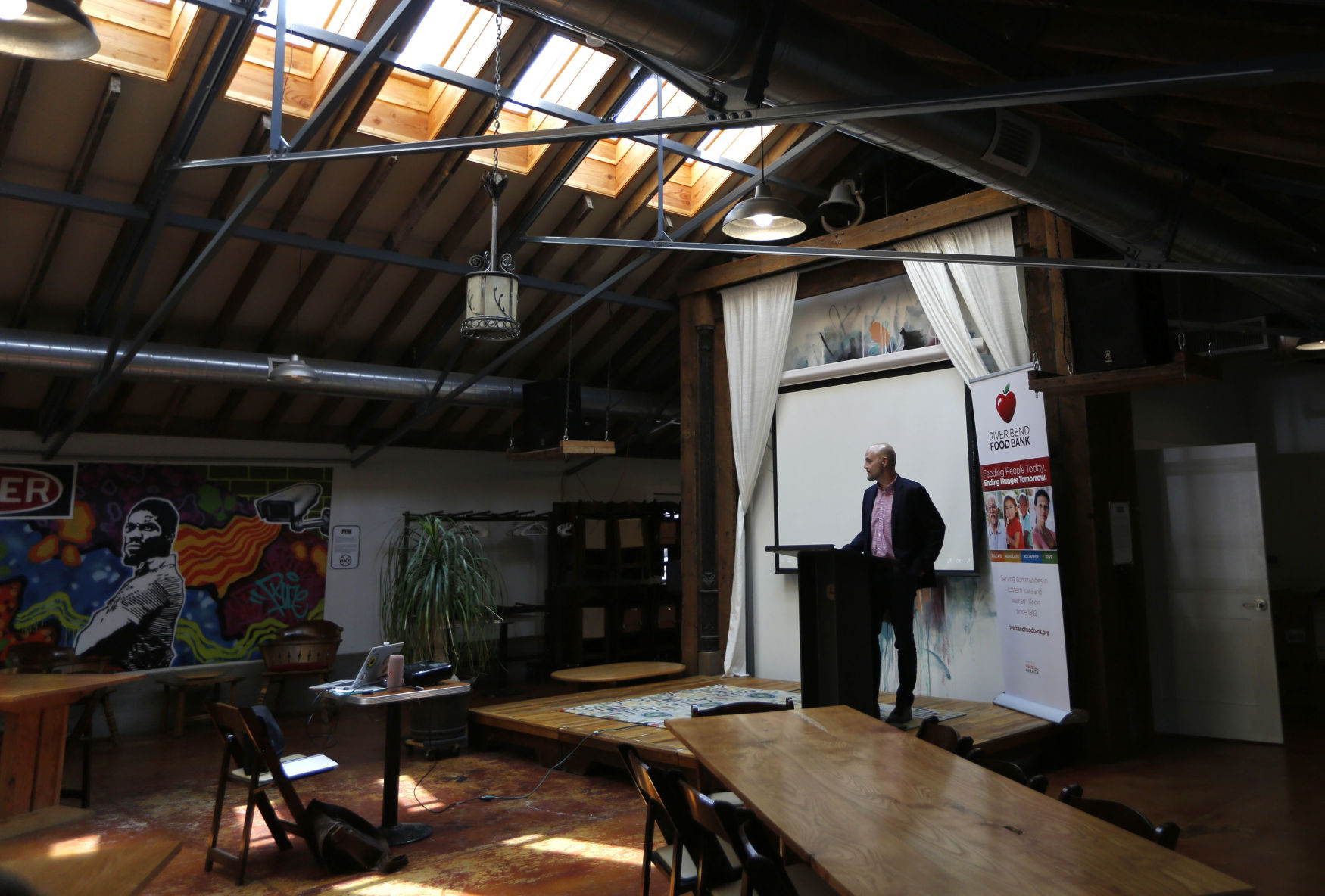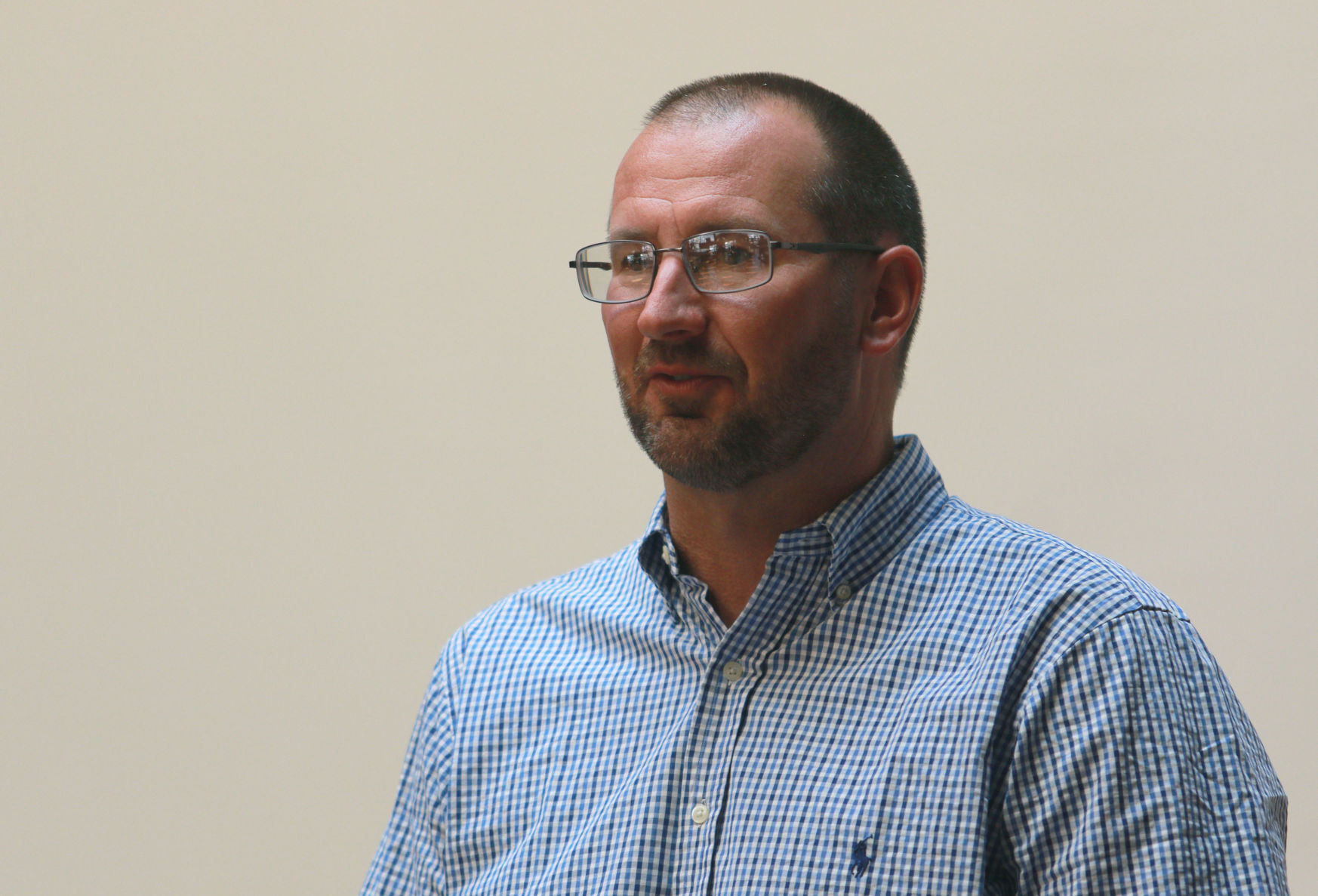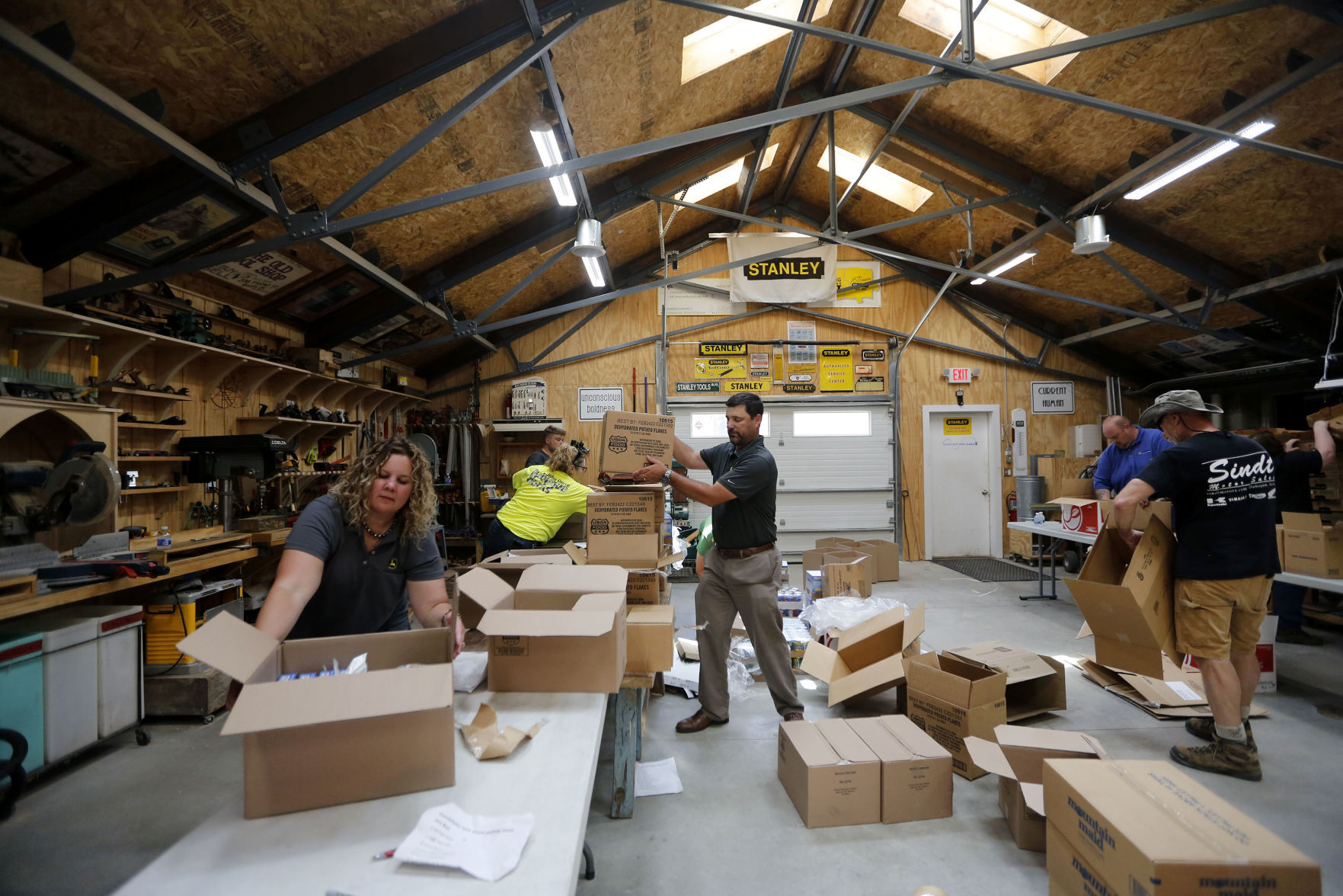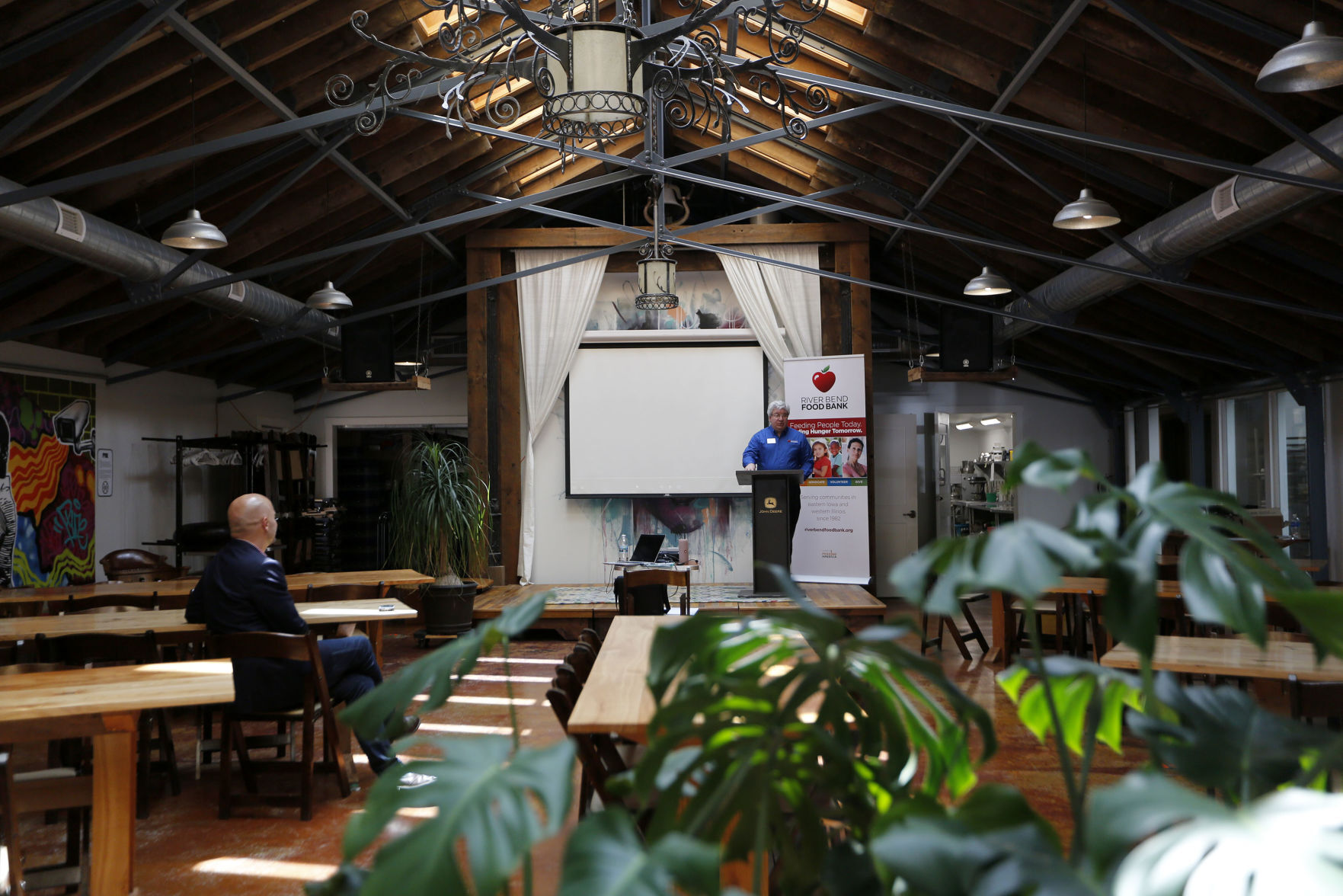A dozen John Deere Dubuque Works employees bustled around Convivium Urban Farmstead on Thursday afternoon, packing boxes of food for the hungry.
Convivium, 2811 Jackson St., was the site of a food box distribution a short time later, with the wares coming from St. Stephen’s Food Bank.
As the volunteers gave their time, John Deere Foundation President Nate Clark was announcing another gift: $1.7 million to support River Bend Food Bank.
The food bank includes St. Stephen’s Food Bank in Dubuque. It supports more than 300 partner agencies in 23 counties in eastern Iowa and western Illinois, including Dubuque, Jackson and Jo Daviess counties.
River Bend President and CEO Mike Miller said the John Deere gift will go toward increasing capacity.
“Before COVID, the highest levels of food insecurities we’d ever seen was after the Great Recession in 2009,” Miller said. “We’ve been working for 10 years, and we were ready to announce last year that we’d finally got things down below 2008.”
Then, the pandemic struck the U.S. Miller said food insecurity jumped by more than 50% as a result.
The food bank responded by providing more meals than ever. River Bend ended up “distributing a record 23 million meals and serving more than 160,000 people last year alone,” according to a press release about the donation issued by Deere.
“So many people are hoping life goes back to normal after COVID,” Miller said Thursday. “We don’t want life to go back to normal in terms of food distribution. We want to continue increasing food distribution until we’ve literally distributed enough food that everybody who needs it has it.”
Deere’s gift will provide a big boost toward that goal.
“This investment is part of the foundation’s previously announced $200 million commitment to communities over the next 10 years,” stated the Deere release. “The donation will provide more food, support enhanced capital infrastructure to transport meals and upgrade the food bank’s technology to reach thousands of families and youth.”
Miller said the food bank is starting to see improvement since the peak of the pandemic.
“In terms of how long it will last, the problem is that there’s a disproportionate impact on the most vulnerable in society — you think about kids, seniors, minorities,” he said. “It hits harder, and it’s going to last longer.”
He explained that increasing capacity will involve food supply and distribution.
“It’s really looking at the whole supply chain,” Miller said. “We’re trying to build enough capacity from beginning to end to meet the need.”
Also in attendance were River Bend financial donors Matt and Kristin Dutton, who farm near the Quad Cities.
“Realizing there were children in our own schools, next to our own kids, who didn’t have food at home was very discouraging for us,” Matt Dutton said.
In 1982, John Deere provided the seed money to start River Bend.
“In the midst of the farm crisis that threatened the livelihood of John Deere’s customers, our employees, our dealers and our suppliers, leaders at John Deere said that we must do more to help those in need in our own communities who are suffering from poverty and hunger,” Clark said.
He said that support of River Bend was one of the best investments John Deere has made.
“The true impacts of River Bend must be seen in the sustenance, security and opportunity that each meal provides to River Bend’s guests,” Clark said.


